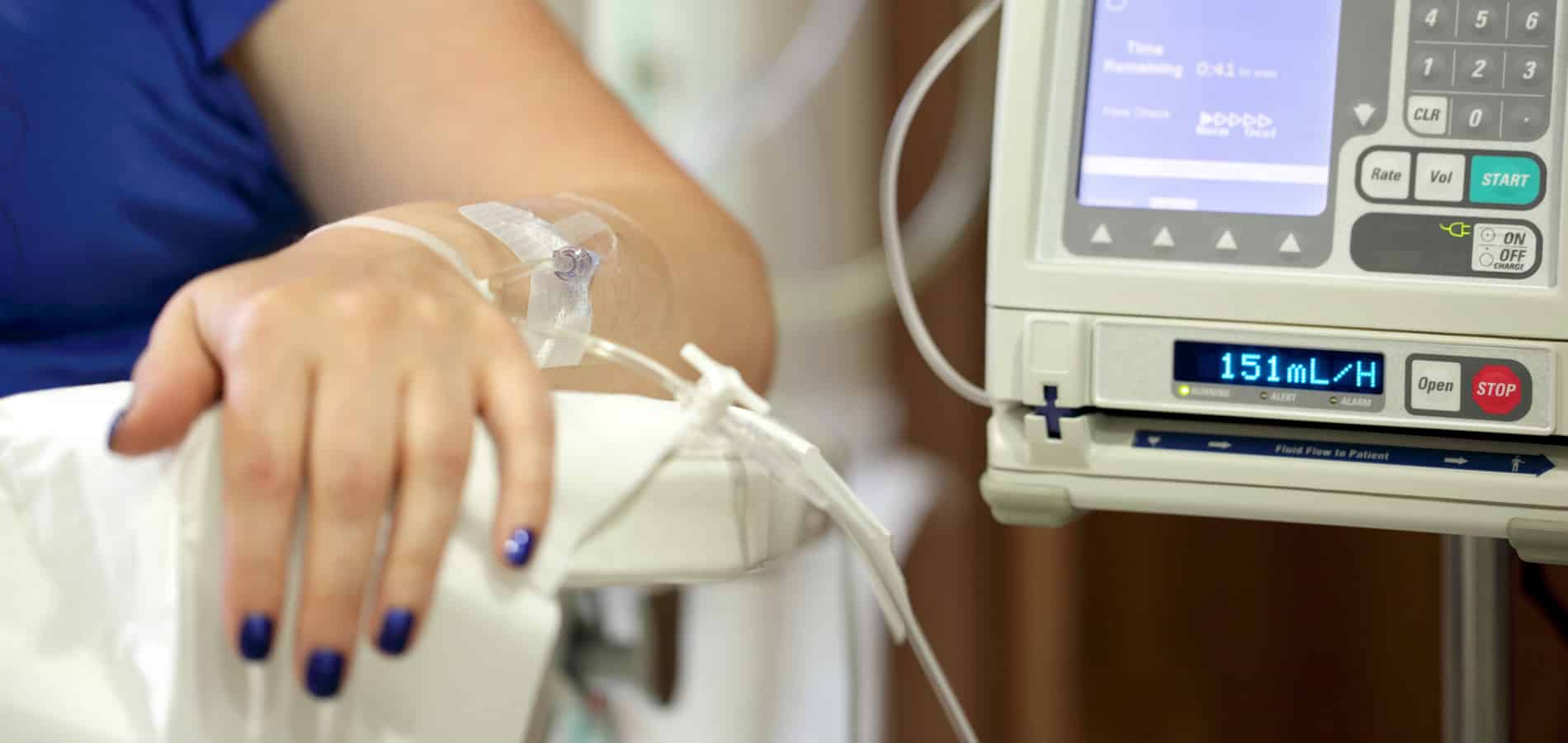
Side effects of cytotoxic drugs
Cytotoxic drugs have adverse side effects. However, your functional capacity during treatment is usually good.
Treatment usually causes nausea, hair loss and fatigue.
Cytotoxic drugs reach almost all cells in the body and they kill healthy cells as well as cancer cells. This is why chemotherapy has adverse side effects. Treatment usually causes nausea, hair loss and fatigue. The side effects vary from one person to another. Some of the side effects disappear after a few days, but it usually takes a few months for you to make an overall recovery from chemotherapy.
Because cytostatics affect dividing cells, many of the side effects are concentrated on renewable tissue, such as hair, bone marrow and mucous membranes. The type and severity of the side effects depend on the drugs used, dosages, your overall condition and how our body responds to the drugs. The most common side effects can nowadays be effectively prevented and treated.
Common side effects
Below we list the most common side effects of cytotoxic drugs. You will be able to get more detailed information on the side effects and their treatment from the medical staff treating you.
Hair loss
The use of certain cytotoxic drugs causes hair growth to stop, which results in either complete or partial baldness and the loss of other bodily hair. Hair regrows once chemotherapy finishes. Not all cytotoxic drugs cause hair loss. Patients on chemotherapy can obtain wigs free of charge from the hospital subject to payment obligations.
Nausea
Nausea is the most common side effect of chemotherapy. As with other adverse effects of chemotherapy, the symptoms of nausea depend on the drug and the dosage you are given. Nausea may result in vomiting a few hours after treatment or as prolonged queasiness that may last up to 2 – 4 days.
However modern preventive medication helps reduce the threat of nausea and alleviate it considerably. The effectiveness of nausea prophylaxis varies with the type of treatment.
Damage to the mouth and pharynx mucosa
The mucous membranes of your mouth and pharynx are rapidly renewable tissues and so are vulnerable to the adverse effects of cytotoxic drugs. The extent of damage to the mucous membranes can vary.
Following chemotherapy the mucous membranes of your mouth and pharynx may start to redden and develop a covering and sores. Drinking and eating are painful and, most problematic, even swallowing saliva is difficult. Fungal infections are common and herpes is possible.
Before beginning chemotherapy, it is a good idea to go to a dentist to have infections treated and get advice on enhanced dental care and using fluoride.
Diarrhoea
Diarrhoea is a common side effect of chemotherapy. It is caused by damage to the intestinal mucous membranes. If diarrhoea is a problem, your bowel function can be slowed down using antidiarrhoeal medication.
Damage to bone marrow
Blood cells are formed in bone marrow, which we have in our large bones. Chemotherapy may cause a drop in white blood cell, blood platelet and haemoglobin counts. The side effects on bone marrow vary with the drugs and their dosage. The most important side effect is usually a drop in your white blood cell count.
Usually, damage to bone marrow is temporary and blood counts gradually improve. The adverse effects on bone marrow puts a limit on using multiple doses of cytotoxic drugs. Damage to the bone marrow increases the risks of infection and communicable disease.
Disadvantages of chemotherapy also include
- constipation
- symptoms affecting the mucous membranes of the eyes
- swelling
- changes to fingernails and toenails
- numbness in the hands and soles of the feet
- muscle pain
- hypersensitivity
- premature menopause symptoms in women due to oestrogen deficiency
Chemotherapy sequelae
Sometimes cytotoxic drugs have long-term adverse side effects and late effects. These include the risk of heart damage, lung damage and kidney failure.
Most adverse side effects occur already during treatment, but heart damage, for instance, may occur only decades later. There are, however, effective drugs for preventing and treating adverse side effects. The later occurrence of secondary complications is fairly rare.
With some cytotoxic drugs there is a maximum dosage that cannot be safely exceeded at any time during the patient’s life.

Problems related to eating
Syöpää sairastavalla voi olla ongelmia syömisessä, ja hän saattaa laihtua.
Read article
Cytotoxic drugs or cytostatics
Cytotoxic drugs or cytostatics (also cytotoxic chemotherapy) are drugs used to destroy cancer cells. Cytotoxic drugs inhibit cell division and in this way cause cancer cells to die. Cytotoxic drugs are transported in the bloodstream throughout the body.
Read article